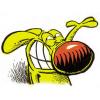| Welcome, Guest |
You have to register before you can post on our site.
|
| Latest Threads |
how to use different font...
Forum: General questions
Last Post: Running_late
1 hour ago
» Replies: 0
» Views: 19
|
arakne path shapes
Forum: Extending the GIMP
Last Post: MrsP-from-C
8 hours ago
» Replies: 3
» Views: 192
|
How to apply layer to obj...
Forum: General questions
Last Post: rich2005
Yesterday, 03:59 PM
» Replies: 1
» Views: 110
|
Selective transparency
Forum: General questions
Last Post: aka
02-04-2026, 03:44 PM
» Replies: 5
» Views: 289
|
ExifToolGUI and ExifTool ...
Forum: Other graphics software
Last Post: denzjos
02-03-2026, 12:07 PM
» Replies: 12
» Views: 12,917
|
Can you identify effects/...
Forum: General questions
Last Post: rich2005
02-02-2026, 09:34 AM
» Replies: 11
» Views: 773
|
GIMP 3.0.8 Installation
Forum: Windows
Last Post: rich2005
02-01-2026, 08:30 AM
» Replies: 2
» Views: 548
|
Best way to recolor this ...
Forum: General questions
Last Post: rich2005
02-01-2026, 08:25 AM
» Replies: 12
» Views: 1,043
|
A Search For Missing Belg...
Forum: Watercooler
Last Post: Tas_mania
02-01-2026, 03:18 AM
» Replies: 3
» Views: 1,205
|
eps file won't open
Forum: General questions
Last Post: rich2005
01-30-2026, 09:26 AM
» Replies: 2
» Views: 310
|
|
|
| Text issue since latest update |
|
Posted by: nothing - 02-23-2022, 12:34 AM - Forum: General questions
- Replies (2)
|
 |
Since the latest update, changing the font doesn't work except in English.
I was able to change it to select a font from Filter at the right sidebar and it doesn't work any longer.
Hope it will be fixed in the next update.
Thank you!
|

|
|
| Easy way to create one image to different dimensions? |
|
Posted by: Qumad - 02-22-2022, 03:21 PM - Forum: General questions
- Replies (1)
|
 |
Hello, I could not find this when answered previously but it might be that my searching skills is not good enough so if this has already been answered in another post please just direct me to that post.
At times I create an image that are to be used over different platforms, ie. Twitter, Instagram, Facebook Post, Facebook Event etc.
All these have different (and ever changing...) size & dimension requirements if you don't want your image to be cut making it look all weird, cutting of some heads at the top, text at ether end etc. etc.
So I was wondering if there was a smart way to make the photo one time and then "transferring/adjusting/scaling" it to different size templates etc. for the different platforms.
Not quite sure if I got my point across but I hope so.
|

|
|
|